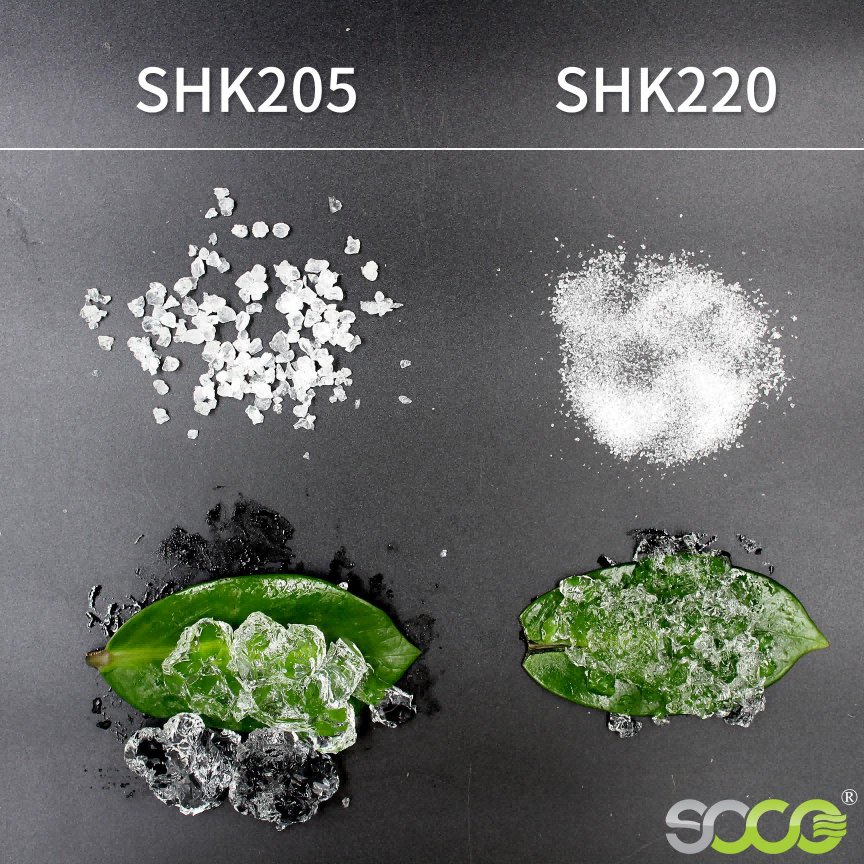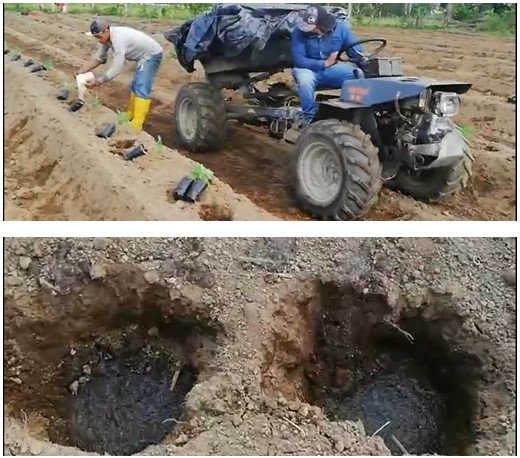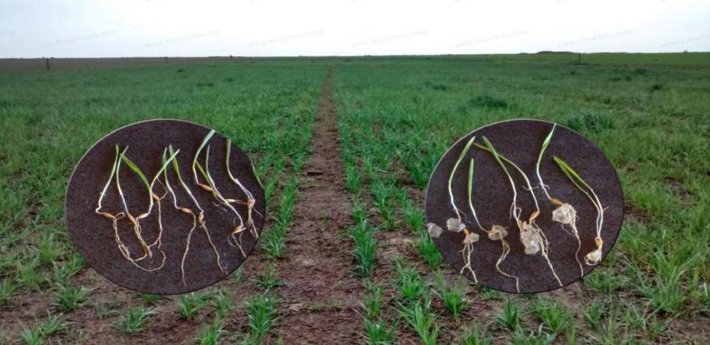Get Free Sample
In Latin America, the confluence of water scarcity and agricultural challenges presents a complex and multifaceted set of issues that impact the region's socio-economic fabric. Water scarcity, stemming from factors such as unequal distribution, climate change, and increased urbanization, poses a significant threat to sustainable development. This scarcity is particularly acute in certain areas, contributing to regional disparities and environmental stress.
Agricultural challenges further compound these issues. Land use changes, often linked to deforestation, contribute to soil degradation and biodiversity loss, undermining the long-term viability of agricultural practices. Smallholder farmers, constituting a substantial portion of the population, face barriers such as limited access to modern technologies, credit, and market opportunities. Outdated irrigation systems and water-intensive agricultural methods contribute to inefficient resource utilization, exacerbating the strain on water supplies.
Given the severity of water scarcity and agricultural challenges in Latin America, it is crucial to seek innovative solutions to address these issues. In this context, agricultural water-retaining agents have gradually attracted attention as an effective tool for soil improvement and water resource management. Potassium polyacrylate is a superabsorbent polymer with the ability to absorb and retain large amounts of water, which can be slowly released under dry conditions, improving soil moisture and crop growth conditions. By reducing water evaporation and runoff, it help improve irrigation efficiency and reduce the demand for water resources in agriculture.

In the realm of agriculture, potassium polyacrylate has proven instrumental in reducing irrigation frequency and curbing water wastage. By incorporating this polymer into soil, it enhances the soil's water retention capacity. This means that plants can access water stored in the polymer during dry periods, reducing the need for frequent irrigation. Consequently, farmers can optimize water usage, leading to more sustainable agricultural practices and mitigating the environmental impact associated with excessive water consumption.
The impact extends beyond agriculture. In landscaping and gardening, the use of potassium polyacrylate in soil amendments can result in healthier plants, while also reducing water requirements for maintaining green spaces. This dual benefit not only promotes environmental sustainability but also supports cost-effective and resource-efficient practices.
A. Real-world examples of water conservation success stories

Crops/Plants:Papaya
Location: Ecuador
Purposes: Increasing transplanting survival rate
Soil Conditions: Mainly volcanic ash soil, red clay, loam and lacustrine soil
Product Model: SOCO® Soil Hydrogel SHK220X
Usage & Dosage: 10g/plant; Wet application
1.According to feedback, compared with those without SOCO® Soil Hydrogel, the application of SOCO® Soil Hydrogel can significantly improve the transplanting survival rate of seedlings--the transplanting survival rate without SOCO® Soil Hydrogel was 84%, while those with SOCO® Soil Hydrogel increased to 99%.
2.SOCO® Soil Hydrogel can improve fruit quality. According to feedback,compared with the control group without SOCO® Soil Hydrogel, the fruit with SOCO® Soil Hydrogel is larger and fuller.
3.The application of SOCO® Soil Hydrogel also helped the client to save irrigation water to a certain extent,reduce irrigation frequency and irrigation labor cost.
One of the key attributes of potassium polyacrylate is its ability to improve soil structure and increase porosity. When incorporated into the soil, this super absorbent polymer forms a gel-like matrix that enhances soil aggregation. This aggregated structure creates spaces between soil particles, promoting aeration and water infiltration. As a result, the soil becomes more resistant to compaction, allowing plant roots to penetrate easily and access essential nutrients.
Potassium polyacrylate's water-absorbing properties play a dual role in soil improvement. During periods of rainfall or irrigation, it efficiently retains water, preventing runoff and erosion. During dry spells, it releases stored moisture to the plants, supporting consistent hydration. This dynamic interaction contributes to maintaining optimal soil moisture levels, a critical factor for healthy plant growth.

B.Positive effects on root development and nutrient absorption
The enhanced soil structure created by potassium polyacrylate has a direct impact on root development. With improved aeration and reduced compaction, plant roots can explore a larger volume of soil, leading to more extensive and robust root systems. This, in turn, enhances the plant's ability to absorb nutrients from the soil.
Potassium polyacrylate also acts as a reservoir for essential nutrients, preventing leaching and ensuring a steady supply to plant roots. The polymer's gel-like matrix can hold onto nutrients such as potassium, nitrogen, and phosphorus, making them more available to plants over an extended period. This efficient nutrient management promotes healthier plants, increased crop yields, and overall improved agricultural productivity.
A. Controlled Release of Water for Optimized Crop Growth
Potassium polyacrylate, a revolutionary water holding polymers, is proving to be a game-changer in agriculture by facilitating the controlled release of water, thereby optimizing crop growth. When integrated into the soil, this polymer forms a water-absorbing gel that acts as a reservoir, efficiently storing and slowly releasing water to plant roots. This controlled hydration is particularly beneficial during dry periods, ensuring a steady supply of moisture critical for sustained crop development.
B. Examples of Enhanced Productivity in Different Crops
The positive impact of potassium polyacrylate on crop yields spans a variety of agricultural contexts and crops. In regions facing water scarcity, farmers cultivating water-sensitive crops such as tomatoes and peppers have reported remarkable improvements. The controlled release of water from the polymer allows for precise moisture management, preventing both water stress and waterlogging, ultimately leading to healthier and more productive crops.
In rice cultivation, a staple for many communities, the application of potassium polyacrylate has demonstrated increased resistance to intermittent flooding and drought conditions. The enhanced water retention properties of the soil contribute to better rice establishment and overall yield stability.
Additionally, in fruit orchards, where consistent and adequate water supply is crucial for quality fruit production, potassium polyacrylate has proven effective. Apple orchards, for example, have seen improved fruit size and quality as a result of enhanced water availability, leading to increased market value for the produce.
C. Long-Term Benefits for Farmers in Terms of Yield and Income
The adoption of potassium polyacrylate translates into substantial long-term benefits for farmers, both in terms of crop yield and income. By mitigating the impact of water scarcity and optimizing irrigation practices, farmers can achieve more reliable and higher yields season after season. The controlled release of water ensures that crops receive the right amount of moisture at the right time, fostering optimal growth conditions.
A. Role of Potassium Polyacrylate in Preventing Soil Erosion
Soil erosion is a critical environmental issue with far-reaching consequences, including loss of fertile topsoil and degradation of agricultural lands. Potassium polyacrylate, a water retaining polymer, plays a crucial role in preventing soil erosion. When applied to the soil, this innovative material forms a water-absorbing gel that binds soil particles together, creating a protective matrix.
During heavy rainfall or irrigation, the gel created by potassium polyacrylate acts as a barrier, preventing water from carrying away soil particles. This controlled water absorption and retention help maintain the structural integrity of the soil, reducing surface runoff and erosion. By stabilizing the soil, potassium polyacrylate acts as a sustainable solution to combat the detrimental effects of erosion on agricultural and natural landscapes.
B. Importance of Maintaining Topsoil Integrity
The integrity of topsoil is paramount for sustaining healthy ecosystems and agricultural productivity. Topsoil is rich in nutrients and serves as the foundation for plant growth. Erosion poses a threat by stripping away this fertile layer, leading to decreased soil fertility, compromised water retention, and increased susceptibility to drought.
Potassium polyacrylate is a type of water-absorbing polymer specially formulated for use in plant care and agriculture. Latin for potassium is "kalium". Potassium is a chemical element with an atomic number of 19 on the periodic table.
Potassium polyacrylate's ability to mitigate soil erosion contributes directly to maintaining topsoil integrity. By preventing erosion, it preserves the nutrient-rich upper layer of soil, ensuring a conducive environment for plant roots to thrive. This, in turn, promotes sustainable agriculture and helps preserve the delicate balance of natural ecosystems.
Polyacrylate de Potassium in Agriculture refers to the use of potassium polyacrylate, a type of synthetic super absorbent polymer, in agricultural practices.
Potassium polyacrylate, a specific form of super absorbent polymer (SAP) tailored for agricultural use, has revolutionized water management practices in farming. This innovative material leverages its exceptional water-absorbing capabilities to enhance soil moisture retention, drought resistance, and overall crop productivity.
We have “Ask The Expert” online service 24/7. If you have any questions please contact us.